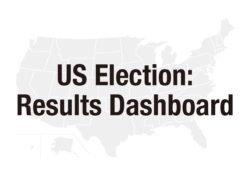- Yomiuri Editorial
- COVID-19 patient data system
Revision should not result in neglecting those with mild symptoms
12:30 JST, September 27, 2022
It is important to reduce the clerical burdens related to novel coronavirus infections so that it leads to the expansion of medical care. It is also important to build a system in which people with mild symptoms can receive medical treatment with peace of mind.
The government has begun a new approach nationwide that will keep track of information on only elderly and other high-risk people infected with the novel coronavirus, revising the previous system that kept track of data on all infected people.
Until now, doctors reported to public health centers the names, addresses, contact information and other information of all patients they treated. The revision will narrow the scope of such reporting to patients age 65 or older, those who are at risk of developing serious symptoms and pregnant women.
The number of items to be reported has become so large that the workload of entering data into the government’s HER-SYS system to consolidate information on infected people has become enormous. Doctors are among the people who have been calling for a simplified system.
Ahead of the central government’s revision, Miyagi, Tottori and seven other prefectures limited the scope of infected people who required full reporting, greatly reducing the burden on hospitals and administrations. It is understandable that the measures are being reviewed based on the characteristics of the omicron variant, which has a low tendency of causing serious symptoms.
On the other hand, people who become severely ill require extensive medical care, including oxygenation. Medical institutions and public health centers should focus their efforts on medical treatment and health observation to the extent that the clerical burden is reduced.
One concern is the care for those who are exempt from reporting. It is necessary to ensure that they are able to receive medical care if their health condition suddenly worsens.
The central government requires patients with mild symptoms and people who test positive in voluntary tests to register their names and contact information with prefectural health follow-up centers. If they register, they can receive livelihood assistance from the local government and referrals to medical institutions.
Will the centers function properly? Local governments should have a system in place to ensure that there will be no cases where calls cannot get through and callers are just led around by an interactive voice response system. The central government should also support such local government efforts.
It is also important to create an environment in which people can immediately obtain test kits when they feel unwell.
Although the central government will no longer be collecting names and other information of all infected people, it will reportedly continue to record the number of infected individuals by age group for the time being. This is certainly an essential step in detecting signs of a new surge in infections.
During the 2½ years of the COVID-19 pandemic, there have not been enough medical facilities to treat patients with fevers, and patients have repeatedly flocked to a limited number of hospitals.
There are fears of an outbreak of seasonal influenza and a surge in COVID-19 cases simultaneously this winter. The central and prefectural governments must intensify their efforts to encourage medical institutions to increase the number of sections to treat outpatients with fever by advising such facilities to make use of subsidies and other means.
(From The Yomiuri Shimbun, Sept. 27, 2022)
"Editorial & Columns" POPULAR ARTICLE
JN ACCESS RANKING





